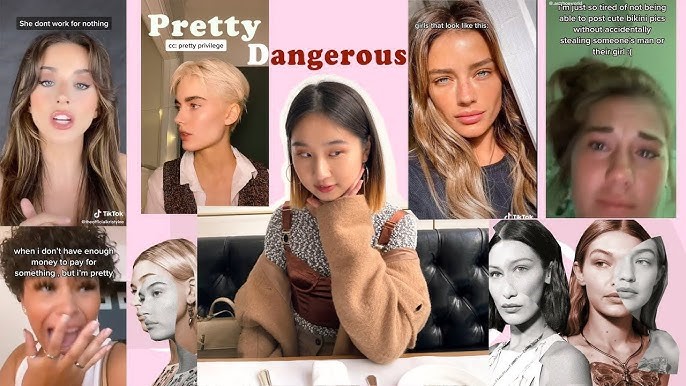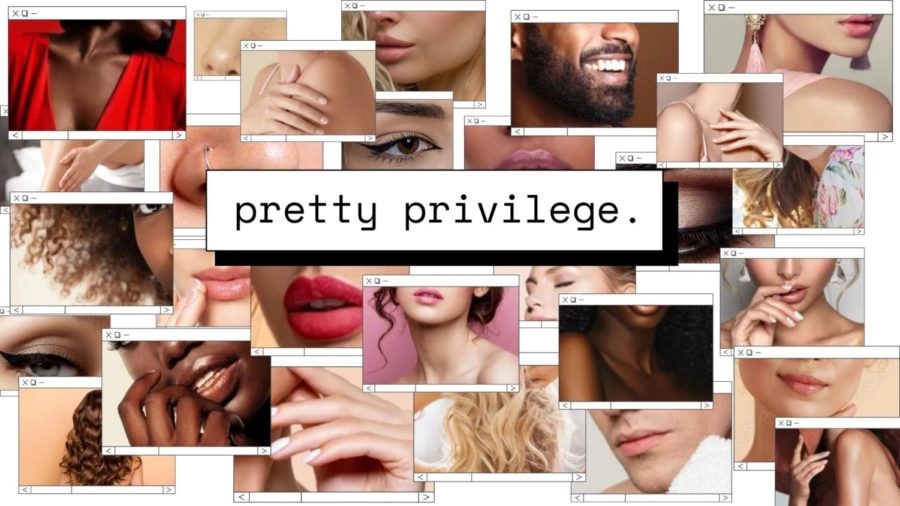By Evi Chrysoheri,
It is a fact that ever since the invention of television and its installation in the homes of the majority of the people, products have been advertised in a way that indirectly promises buyers they will become more attractive. The examples are countless· anti-aging creams, for instance, are presented as if they are elixirs of eternal youth, simultaneously condemning the inherent and inevitable nature of human aging. Numerous companies amass wealth precisely because this idea has been instilled in the public: the notion that one must be beautiful. And, of course, this beauty is far from subjective. Considering the above, it is undeniable that the phenomenon of “pretty privilege” exists; in fact, it is merely an offshoot of the beauty industry.
More specifically, a person who is conventionally attractive has undoubtedly received better treatment from others compared to someone deemed less attractive. For example, an unattractive individual may face challenges in forming friendships or romantic relationships and might even experience rejection in their professional life. Moreover, physical beauty alone can open many doors to employment, often with generous compensation. Some examples of such professions include modeling, working as presenters or PR representatives in venues (essentially individuals whose only purpose is to attract customers), and becoming influencers. Regarding the last profession, many individuals have gained a significant following, solely due to their physical appearance. As a result, numerous companies send them products to promote, enabling them to earn thousands of dollars with a single post. Furthermore, this platform opens up additional opportunities, with many creating their own successful businesses. To be clear, I do not dismiss the hard work required to build a thriving enterprise; rather, I highlight the ease with which such opportunities arose, primarily based on external appearance-opportunities that would likely not be offered to someone deemed “unattractive”.
However, another form of bias, predominantly directed towards women, is equally evident: their beauty is often weaponized against them, leading to the assumption that they lack intelligence or have little to offer beyond their physical appearance. This deeply ingrained stereotype is encapsulated in the derogatory and reductive phrase, “blondes are dumb” a reflection of society’s tendency to undermine a woman’s intellect based solely on her looks. Such attitudes, not only perpetuate harmful gender norms, but also diminish the multifaceted capabilities and achievements of women.

In contrast, individuals considered unattractive often face challenges that could have been avoided if they were beautiful. As previously mentioned, they may struggle to form friendships and romantic relationships. However, this is not a reflection of the individual’s worth and under no circumstances should a person’s value be judged based on their appearance. Nevertheless, there are testimonies from people who were previously obese and experienced a drastic change in how they were treated by others after losing weight. Once they become thinner, they noticed significantly better treatment from those around them, highlighting society’s often superficial and biased attitudes. This has given rise to the trend known as the “glow up”, which revolves around self-improvement sometimes to an obsessive degree. While self-improvement in itself is not inherently negative, the issue lies in the constant promotion of a singular standard of beauty, one that is neither achievable for everyone nor should it be. This relentless idealization fosters unrealistic expectations and disregards the diversity of beauty that exists naturally among individuals.
In conclusion, while physical attractiveness can undeniably open doors and provide certain advantages, it also underscores the pervasive societal biases that equate beauty with worth. The phenomenon of pretty privilege not only highlights the inequities faced by those who do not fit conventional beauty standards, but also perpetuates unrealistic ideals that can harm both individuals and society as a whole. Recognizing and challenging these biases is a crucial step toward fostering a more inclusive and equitable world where people are valued for their character, talents and contributions rather than their appearance.
Reference
- Can ‘Pretty Privilege’ Affect Your Job Prospects? SOUK. Available here




